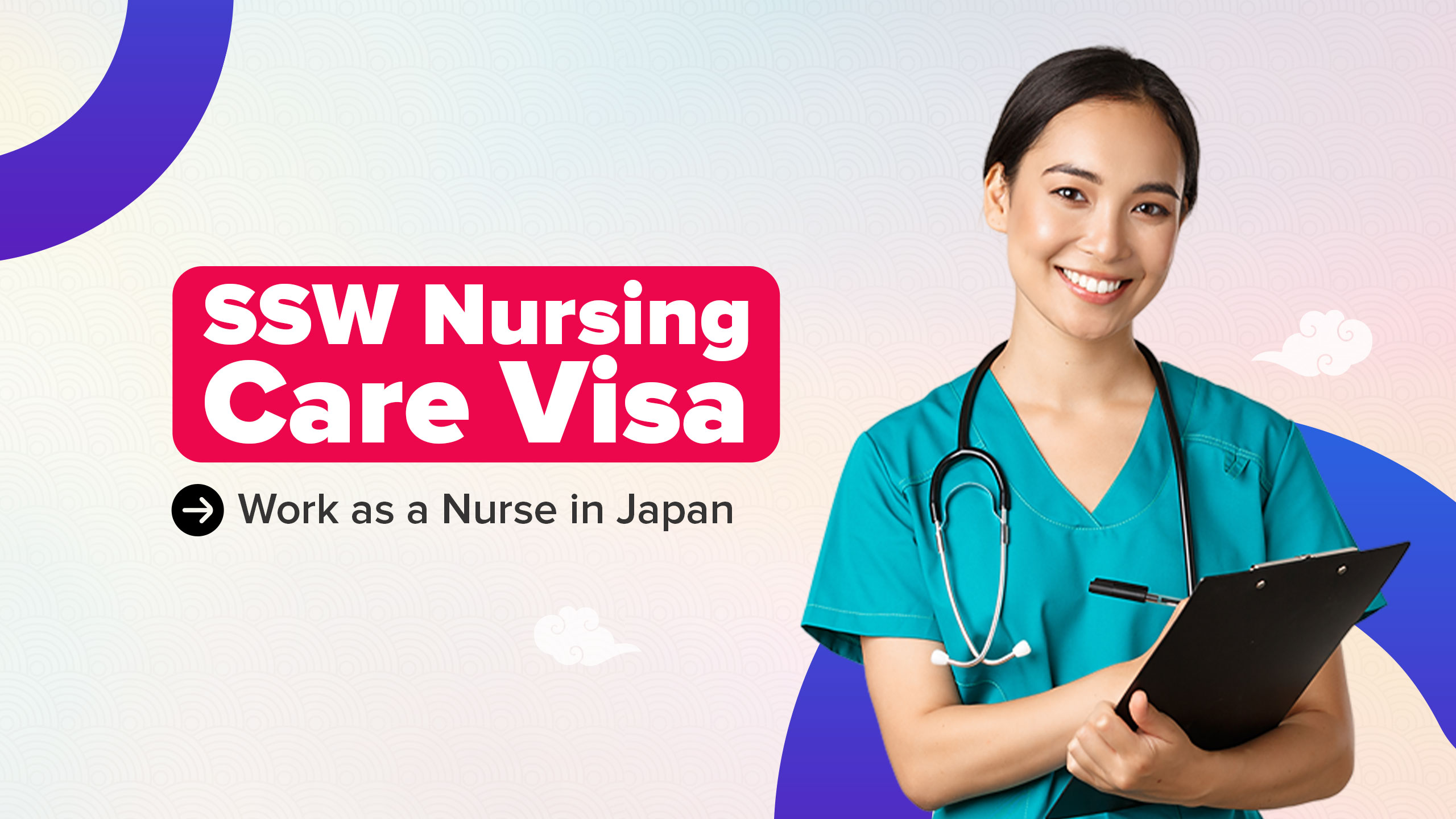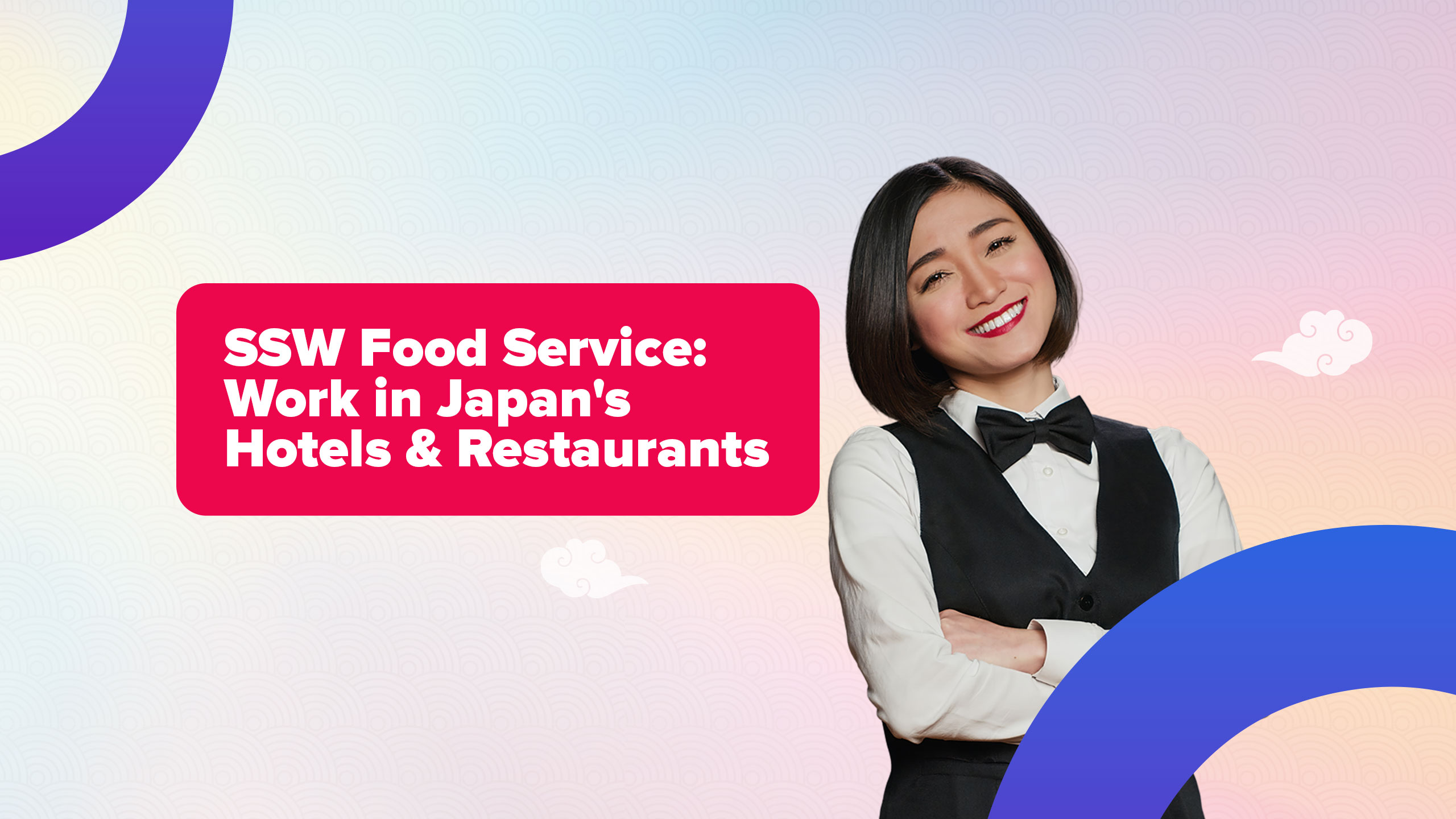In recent years, Japan has opened its doors wider to foreign workers through the Specified Skilled Worker (SSW) Visa, offering exciting opportunities to skilled individuals from countries like Nepal. As Japan faces labor shortages in various industries, the SSW Visa program serves as a win-win initiative for both Japan and skilled workers seeking overseas employment. This guide will walk you through what the SSW Visa is, SSW Visa requirements, the benefits of the SSW Visa for skilled Nepali workers, and how to prepare for the SSW Visa in Nepal.
Table of Contents
- What is the SSW Visa in Japan?
- Benefits of SSW Visa for Skilled Nepali Workers
- SSW Visa Requirements for Nepali Applicants
- SSW Visa Preparation in Nepal
- Final Thoughts
- FAQs - Benefits of SSW Visa for Nepali Skilled Workers
What is the SSW Visa in Japan?
The SSW Visa (Specified Skilled Worker Visa) is a residency status introduced by the Japanese government in April 2019. It aims to bring in foreign nationals who possess expertise and skills in specific industries facing workforce shortages in Japan.
There are two types:
SSW Type 1:
- For 16 job sectors (e.g., caregiving, food service, construction, agriculture, etc.).
- Valid for up to 5 years.
- No family accompanying.
SSW Type 2:
- For highly skilled professionals in construction and shipbuilding.
- Allows family accompanying and long-term stay.
Most of the Nepali workers prefer SSW Type 1, particularly in sectors like nursing care, food service, agriculture, manufacturing, and hospitality.
Benefits of SSW Visa for Skilled Nepali Workers
For many Nepali youths seeking better opportunities abroad, the Specified Skilled Worker (SSW) visa program in Japan is a game-changer. Unlike traditional work permits, the SSW visa is structured, protective, and empowering, designed to address Japan’s labor shortages while uplifting the careers of foreign workers.
Below is a deep dive into the key benefits that skilled Nepali workers can enjoy under this visa:
1. Equal Pay – Competitive Salaries Comparable to Japanese Nationals
One of the biggest attractions of the SSW visa is salary equality. Unlike many Gulf nations where foreign workers are paid less than locals, Japan enforces a “same job, same pay” policy. Under the SSW framework:
- Monthly salary ranges: ¥150,000 to ¥250,000+ (equivalent to NPR 150,000 to 250,000+)
- Salary may vary based on the sector, region, and employer but always aligns with what a Japanese citizen in the same role earns.
- Overtime pay, night shift allowances, and bonuses may also be provided.
This income level is significantly higher than average wages in Nepal, allowing workers to support their families, save, and invest for the future.
2. Comprehensive Social and Health Benefits
SSW visa holders are entitled to Japan’s national health insurance and pension schemes, which ensure both short-term and long-term well-being:
- Health Insurance: Covers hospital visits, surgeries, and prescriptions. Workers only pay 30% of medical expenses, the government covers the rest.
- Pension Contribution: Even as foreigners, SSW workers contribute to and benefit from the Japanese pension system. Upon returning to Nepal, they may apply for a lump-sum withdrawal of their pension contributions.
- Workplace Safety: Japan strictly enforces labor laws, providing safe and hygienic workplaces.
These benefits create a secure safety net for Nepali workers, rarely seen in other overseas employment options.
3. Professional Growth and Skills Enhancement
Japan’s industries are known for precision, discipline, and technology. Working under the SSW visa means Nepali workers gain hands-on experience in a globally admired system.
- Learn Japanese work culture, teamwork, time management, and technical precision.
- Access skill development programs and training workshops provided by employers.
- Certification in Japan can be used globally, improving employability in other countries as well as back in Nepal.
This international work experience greatly enhances a worker’s resume and opens doors to future career upgrades.
4. Legal Protection and Ethical Recruitment
Nepali SSW visa holders are legally protected under Japanese labor laws, including:
- Standard working hours (8 hours/day, 5 days/week)
- Paid holidays and sick leaves
- Anti-discrimination and anti-exploitation policies
- No illegal broker involvement (as recruitment is government-to-government or via licensed agencies)
Additionally, the “Basic Policy on Acceptance of Foreign Workers” ensures humane treatment, proper documentation, and a complaint redressal mechanism. For Nepali workers, this is a massive improvement over the risks they may face in other countries with weak labor protections.
5. Job Opportunities in 16 Key Sectors
SSW Visa covers 16 industries with immediate labor demands in Japan:
- Nursing Care
- Building Cleaning Management
- Manufacture of Industrial Products
- Construction Industry
- Shipbuilding and Ship Machinery Industry
- Automobile Repair and Maintenance
- Aviation Industry
- Accommodation Industry
- Automobile Transportation Business
- Railway
- Agriculture
- Fishery and Aquaculture Industries
- Manufacture of Food and Beverages
- Food Service Industry
- Forestry
- Wood Industry
6. Pathway to Family Reunion and Permanent Residency (Under SSW Type 2)
While SSW Type 1 does not allow family accompaniment, there is potential progression to SSW Type 2. After gaining sufficient experience and higher-level skills, workers can upgrade to this category.
SSW Type 2 Benefits:
- Unlimited renewals
- Family reunion rights (spouse and children can join in Japan)
- Possibility of permanent residency in the long term
This offers a realistic future plan for Nepali workers wanting to settle, grow, and reunite with loved ones in Japan.
7. Option of Conversion to Student Visa
One lesser-known benefit of the SSW visa is the option to convert to a student visa if you wish to pursue higher education in Japan. After gaining work experience, many SSW holders choose to enroll in vocational schools or universities, allowing them to upgrade their qualifications while continuing to stay legally in Japan.
The process to obtain the student visa is typical, i.e. you meet academic requirements based on your chosen program, and secure admission in your preferred college or university. Additionally, to switch from your SSW visa to a Student visa, you need to apply for a change of status with the Immigration Services Agency of Japan.
8. International Exposure & Cultural Exchange
Living and working in Japan provides Nepali workers with a unique opportunity to:
- Experience cutting-edge technology, infrastructure, and services.
- Participate in cultural exchange, learning Japanese values, etiquette, and customs.
- Make global connections with coworkers from the Philippines, Vietnam, Indonesia, etc.
This exposure boosts interpersonal skills, adaptability, and global perspective, essential for long-term success in any career.
9. Option to Re-apply or Re-enter Japan
Once the maximum 5-year limit under SSW Type 1 is reached, workers can:
- Return to Nepal and reapply with advanced skills or in a different sector.
- Apply for SSW Type 2, Technical Intern Training (TITP), or even student/work visas with new qualifications.
- Utilize savings and Japanese work experience to start a business or become a trainer back in Nepal.
The SSW visa is not a dead-end program, but a bridge to higher possibilities.
SSW Visa Requirements for Nepali Applicants
To be eligible for the SSW Visa, Nepali candidates must fulfill the following requirements:
1. Age Limit
- Must be at least 18 years old.
2. Skills Test (Tokutei Ginou Exam)
- Must pass a Japanese government-approved skill test in your chosen sector.
- Each industry has its own testing criteria.
3. Japanese Language Proficiency
- Pass JLPT N4 or JFT-Basic (Japan Foundation Test for Basic Japanese).
- Demonstrates basic communication skills required for working in Japan.
4. Health & Background Check
- Must be physically and mentally fit.
- No criminal record.
5. Pre-Departure Orientation
- Attend a pre-departure training and orientation offered by registered institutes in Nepal.
SSW Visa Preparation in Nepal
To prepare for the SSW visa in Nepal, you will need to follow the following steps:
- Choose Your Job Sector (Based on interest and prior work experience)
- Become a Proficient Japanese Language Speaker
- Pass the Skill Evaluation Test
- Apply for a Job or Placement
- Apply for the SSW Visa at the Japanese Embassy in Nepal
- Receive Visa and Prepare for Departure
For detailed information regarding these steps, refer to our dedicated blog How to Apply for SSW Visa in Japan: A Complete Beginner’s Guide
Final Thoughts
The Specified Skilled Worker (SSW) Visa is more than just a work permit, it's a powerful bridge connecting Nepali talent with Japan’s thriving industries. With benefits like equal pay, legal protection, healthcare, skill enhancement, and potential long-term residency, the SSW visa offers a secure and rewarding pathway for thousands of Nepali youths seeking international employment.
As Japan continues to face labor shortages, the demand for disciplined, skilled, and motivated workers from Nepal will only grow. By preparing well through Japanese language training, skill certification, and working with authorized agencies, aspiring candidates can transform their futures and contribute meaningfully to both Japan and Nepal.
If you’re a skilled worker in Nepal, now is the time to explore the SSW visa, prepare strategically, and take the first confident step toward a brighter tomorrow in Japan.
FAQs - Benefits of SSW Visa for Nepali Skilled Workers
1. What are the benefits of SSW in Japan?
The SSW visa offers equal pay as Japanese workers, access to health insurance and pension, safe working environments, career growth, and a pathway to long-term stay or family reunion under SSW Type 2. It provides legal protection, job stability, and skill recognition in 16 high-demand sectors.
2. What is the basic salary of a SSW visa in Japan?
The average monthly salary under an SSW visa ranges from ¥150,000 to ¥250,000 (approx. NPR 150,000–250,000+), depending on the industry and location. Workers also receive overtime pay, bonuses, and benefits similar to local employees.
3. How many years can you work in Japan with a SSW visa?
Under SSW Type 1, you can work for up to 5 years, but it is not renewable beyond that. However, skilled workers can transition to SSW Type 2, which allows indefinite renewal and long-term stay, including family accompaniment.
4. Is SSW visa a working visa?
Yes, the SSW (Specified Skilled Worker) visa is a specialized working visa designed for foreign skilled workers in labor-shortage industries in Japan. It allows full-time employment under legal protections and sector-specific conditions.
5. What is the age limit for SSW visa?
There is no strict upper age limit, but applicants must be at least 18 years old and physically fit to work. Most candidates fall between the ages of 18 to 35, which is preferred by many employers.
6. What is the demand for SSW in Japan?
Japan has a high and growing demand for SSW workers across 16 sectors, including nursing care, agriculture, food service, manufacturing, and construction. With an aging population and labor shortages, Japan plans to accept hundreds of thousands of SSW workers, making it a strong opportunity for Nepali applicants.
Also Read:
Work in Japan from Nepal: Visa & Procedure Guide 2025
How to Apply for SSW Visa in Japan: A Complete Beginner’s Guide
SSW Preparation In Nepal : A Guide 2025




